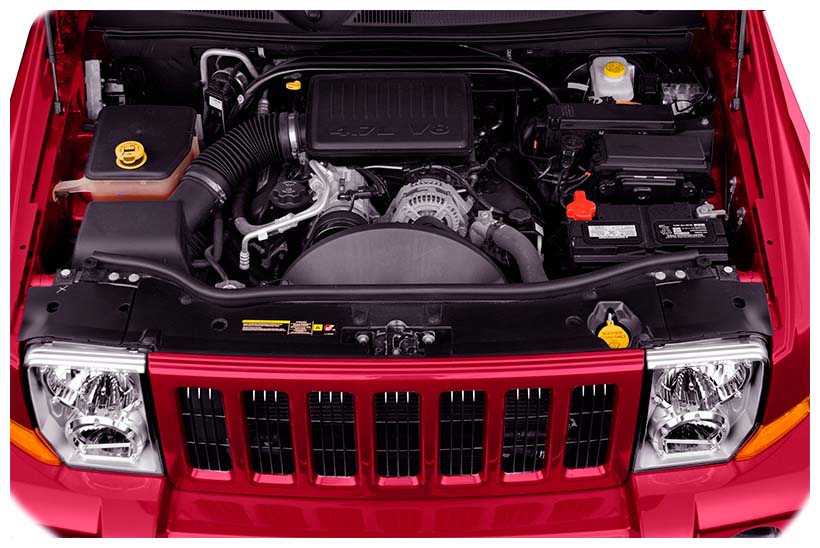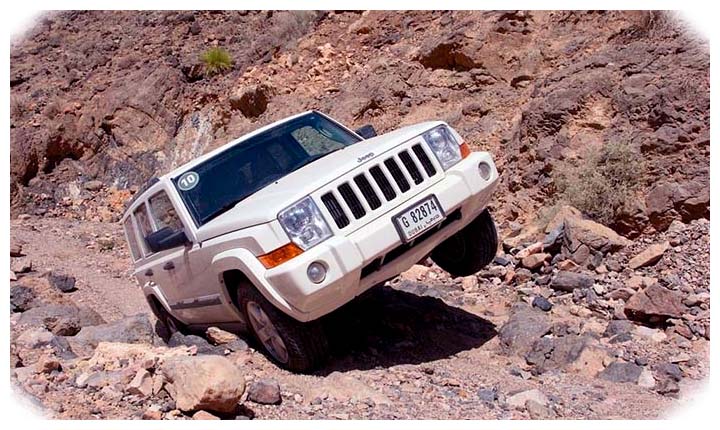The Jeep Commander is a midsize SUV designed and manufactured by the Jeep division of the Chrysler Group. It was first launched in 2006 and quickly achieved great success, becoming one of the best-selling midsize SUVs in its segment. One of the biggest advantages of owning a Jeep Commander is its impressive fuel efficiency, which has been praised by many owners and automotive experts alike.
Because fuel economy plays such an important role when it comes to choosing an SUV, it’s important to have a clear understanding of the gas mileage for any potential purchase. This comprehensive guide will cover everything you need to know about the gas mileage for Jeep Commanders, including EPA ratings, real-world MPG numbers, comparison with other midsize SUVs, and factors that affect their fuel efficiency.
Jeep Commander Gas Mileage
When it comes to gas mileage for Jeep Commanders, there are three key factors to consider: EPA fuel economy ratings for various models; real-world MPG numbers; and comparison with other midsize SUVs.
-
EPA Fuel Economy Ratings: The Environmental Protection Agency (EPA) publishes estimated highway/city MPG ratings based on laboratory testing conditions. According to these ratings, different models of Jeep Commanders have different fuel efficiency levels. For example, the 2007 Jeep Commander 4×4 with a 4.7L V8 engine has an EPA rating of 14/19 MPG (city/highway), while the 2008 model with a 3.7L V6 engine has an EPA rating of 16/22 MPG city/highway.
-
Real-World MPG Numbers: The real-world gas mileage numbers can differ significantly from the EPA ratings due to several factors, including driving habits, terrain, weather conditions, and more. However, most owners of Jeep Commanders report an average real-world MPG rating between 15 and 20 MPG for city driving, and up to 25 MPG on the highway.
-
Comparison with Other Midsize SUVs: When compared to other midsize SUVs such as the Toyota Highlander or Honda Pilot, the Jeep Commander is one of the most fuel-efficient vehicles in its class. On average, drivers can expect fuel economy that is slightly better than those two vehicles – around 1–2 MPG higher – although this varies depending on engine size and other factors.
Factors that Affect Gas Mileage
In addition to engine size and model year, several other factors can affect the fuel efficiency of Jeep Commanders. These include:
-
Engine Type and Size: The type and size of the engine have a major impact on the gas mileage of Jeep Commanders. Larger engines typically have lower MPG ratings than smaller ones, so it’s important to choose an engine size that fits your needs without sacrificing too much in terms of fuel economy.
-
Transmission Type: Another factor that affects the MPG rating of Jeep Commanders is the transmission type. While automatic transmissions usually offer better gas mileage than manual ones, they are also more expensive to purchase and maintain.
-
4WD vs 2WD: Another factor to consider when it comes to fuel economy is whether you opt for the 4-wheel drive (4WD). 4WD vehicles have lower MPG ratings than their 2-wheel drive (2WD) counterparts due to increased weight and friction from the additional components.
-
Driving Habits: The way you drive has a major impact on your vehicle’s fuel efficiency. Aggressive acceleration, high speeds, and frequent stops all reduce your overall MPG rating by forcing your engine to work harder for longer periods of time.
-
Terrain and Weather Conditions: The terrain you drive on and the weather conditions you face can also affect your vehicle’s MPG rating. For example, driving in hilly areas requires more fuel, while cold temperatures reduce efficiency due to increased friction between engine parts.
-
Maintenance and Modifications: Poor maintenance or aftermarket modifications can also negatively affect your vehicle’s MPG rating. It’s important to follow the manufacturer’s guidelines for regular maintenance to ensure optimal performance and fuel economy over time.
Tips to Improve Gas Mileage
In addition to the factors mentioned above, there are several other ways you can improve the fuel efficiency of your Jeep Commander:
-
Proper Tire Inflation: Properly inflated tires can significantly improve your vehicle’s fuel economy by reducing rolling resistance and improving traction on slippery surfaces. Check your tire pressure regularly with a reliable tire pressure gauge for the best results.
-
Lighten the Load: Extra weight increases friction between components, forcing the engine to work harder to maintain high speeds or accelerate quickly – all of which decrease the overall MPG rating. Whenever possible, avoid carrying extra passengers or cargo that’s not necessary.
-
Reduce Speed and Aggressive Driving: Driving at higher speeds requires more fuel, while aggressive acceleration and braking reduce MPG rating by forcing the engine to work harder than necessary to maintain speed or decelerate quickly.
-
Regular Maintenance: Regular maintenance is key to ensuring optimal performance and fuel economy over time. Follow the manufacturer’s guidelines for oil changes, tune-ups, and other scheduled maintenance to keep your vehicle running at its peak efficiency.
-
Upgrades and Modifications: Aftermarket modifications can also have a major impact on your vehicle’s MPG rating, so it’s important to research any potential upgrades before making a purchase. Some common modifications that can improve fuel efficiency include air intake, exhaust systems, lightweight wheels, and low-friction tires.
Conclusion
When it comes to gas mileage for Jeep Commanders, several factors affect its performance – including engine size and type, transmission type, 4WD vs 2WD drivetrain configuration, driving habits, terrain, and weather conditions – as well as tips you can use to improve its MPG ratings. By understanding these factors and following the recommended tips above you can ensure that your Jeep Commander will provide you with many years of reliable and fuel-efficient performance.

 Engine Type and Size: The type and size of the engine have a major impact on the gas mileage of Jeep Commanders. Larger engines typically have lower MPG ratings than smaller ones, so it’s important to choose an engine size that fits your needs without sacrificing too much in terms of fuel economy.
Engine Type and Size: The type and size of the engine have a major impact on the gas mileage of Jeep Commanders. Larger engines typically have lower MPG ratings than smaller ones, so it’s important to choose an engine size that fits your needs without sacrificing too much in terms of fuel economy.
Add Comment